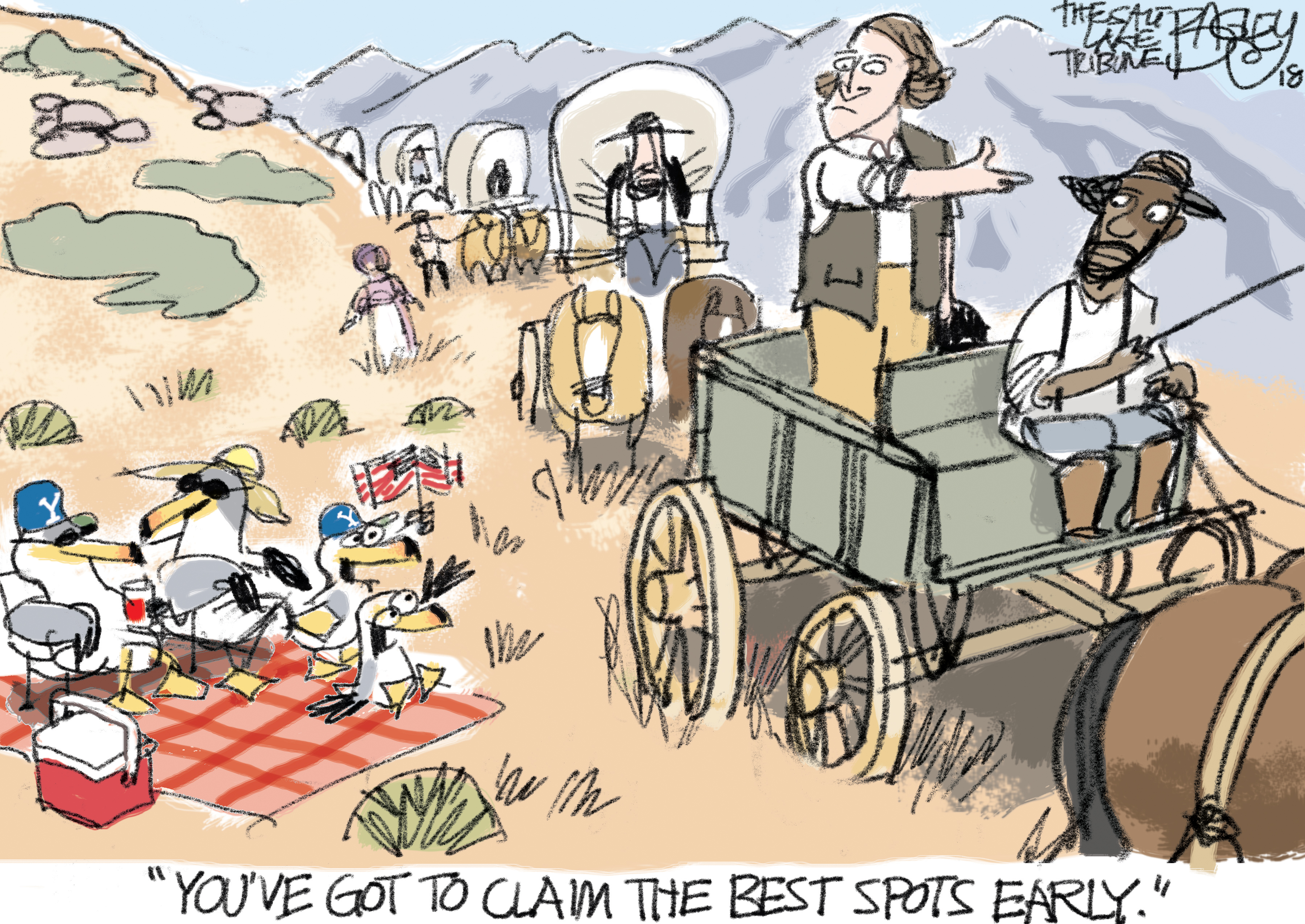The moment ranks high on Utah center Lo Falemaka's list of potentially life-altering events, although not necessarily at the top. As the Utes concluded a session of spring football practice in late March, offensive line coach Jim Harding gathered his players and told them the news they all wanted to hear: The NCAA granted Falemaka's waiver for a sixth season of eligibility in 2018.
Otherwise, he would have become a pro football player the very next day.
The Utes were staging the annual Pro Day for NFL scouts. Falemaka would have joined his former teammates in the evaluations, if not for the favorable ruling that concluded a process he labeled “definitely nerve-wracking.”
The extension of Falemaka’s college career — most athletes are allowed four seasons of competition in a five-year period — stemmed from a 2015 incident. It is the hidden explanation in the year-by-year account of Falemaka’s Ute career in the media guide, outlining how he “played in the first two games against Michigan and Utah State before missing the rest of the [2015] season with an injury.”
The Utes beat USU on a Friday. The next night, Falemaka and former teammate Marcel Manola (then known as Marcel Brooks-Brown) were shot during a house party near the campus. Manola’s account in The Salt Lake Tribune a few months later described Falemaka as trying to help a woman deter the suspects from joining the party, intended mainly for Ute athletes.
Falemaka was hospitalized for more than a week; a bullet that ricocheted inside of him ended up near his left hip, where it remains.

That’s about the only detail of the incident he willingly discusses, three years later. “All I know is I’m alive and I’m blessed to be here,” Falemaka said during the Pac-12 Media Day in Hollywood, Calif.
The shooting, the reality of what may have happened to him and everything involved in his recovery are not thoughts that occur to him every day. “Only when people bring it up,” he said. “I don’t think about it, just because it happened in the past. I’ve got to focus on what’s going on in my life right now — just forget about it. It doesn’t do anybody any good.”
That's just one of the setbacks the Cottonwood High School graduate has experienced with the Utes. Replacing injured starter J.J. Dielman in a 2016 game at California, Falemaka also got hurt, costing him a big chunk of the season. Injuries to both knees and an appendectomy have “definitely tested my patience,” he said.
Yet he played all 13 games of last season as the Utes' starting center, and returns as a leader who's likely to be voted a co-captain this month. He's the anchor of the offensive line, in multiple ways.
“Lo's been here a lot of years and he's got a lot of wisdom, so I learn a lot from him,” lineman Johnny Capra said. “Absolutely, he's gone through a lot and he can teach us all a lot, and he's a hell of a player, so I'm glad to be working with him.”
Harding became the Utes' offensive line coach in 2014, when Falemaka was a scout-team player. Harding has watched him evolve into a major figure in in the program, especially among the linemen who look up to him.
“From day one to now is kind of light-years different,” Harding said. “He's done a phenomenal job of rallying the troops and keeping the spirits up.”
Isaac Asiata, a former Ute lineman now with the Miami Dolphins, once marveled about his teammates' recovery from the gunshots and said, “I can't wait to see what kind of careers they have here. I'm excited to find out.”
Manalo’s Ute tenure was short; he left the team in October 2016. Falemaka keeps in touch with him via web-based video gaming, and they still consider themselves “blood brothers” after their shared experience.
Falemaka has made more of an impact in Utah's program than Asiata ever could have pictured. He has gone from a walk-on and scout-team player to a scholarship athlete and starter, now a candidate for All-Pac-12 awards.
His NFL audition will come soon enough, next March. As one of eight children who grew up in West Valley City, Falemaka is eager to provide help with his potential earnings in pro football. “All that bread,” he said, “is going straight to my family.”










































